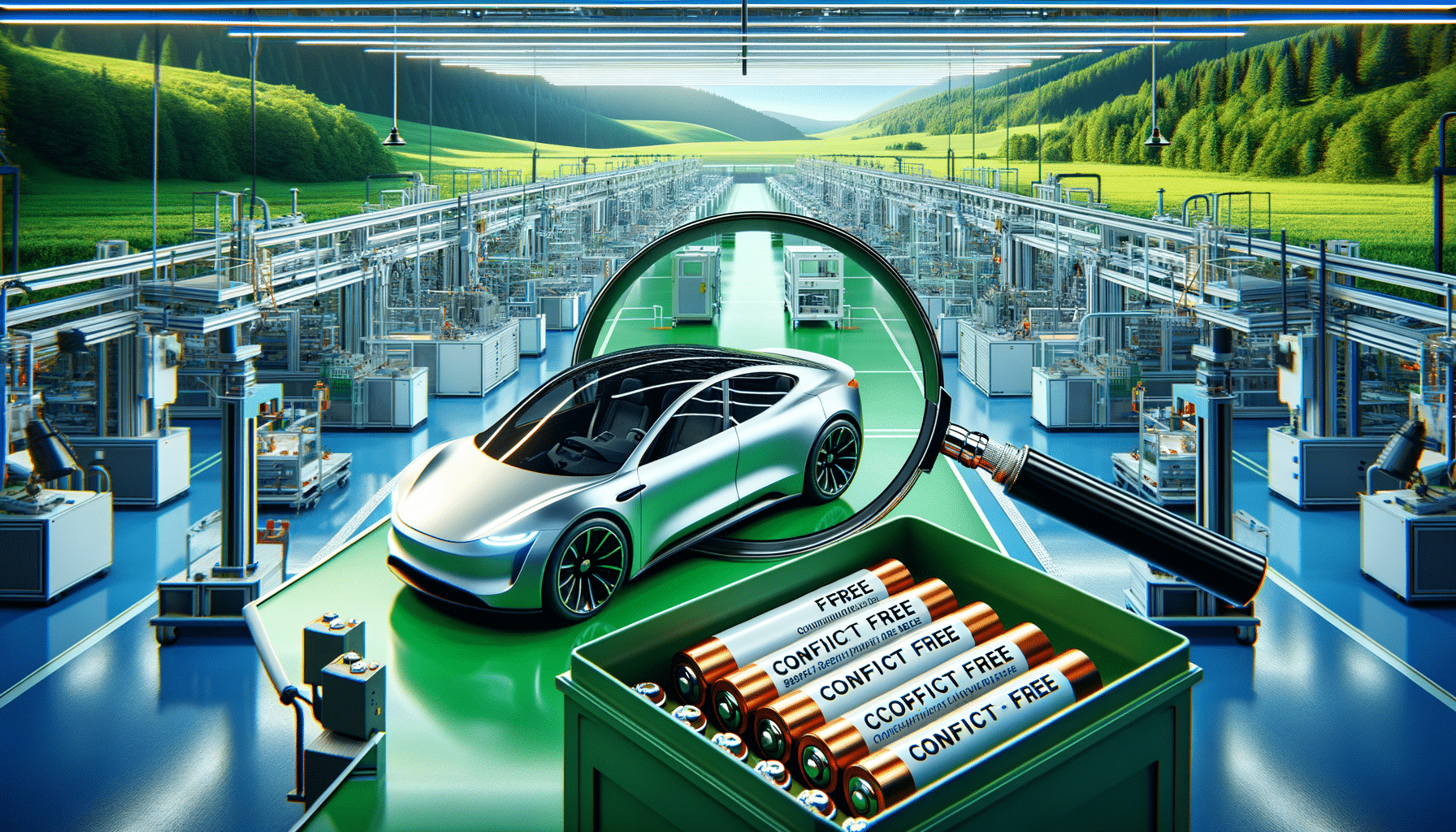Ethical Sourcing in Luxury Cars: Conflict Minerals in EV Batteries
Exploring the ethical challenges and industry responses regarding conflict minerals in the luxury car sector.

The Intersection of Luxury and Ethics
Luxury cars have long been a symbol of status, wealth, and technological advancement. However, in recent years, the focus has shifted towards ensuring that these symbols of opulence are also ethically sourced. The luxury car industry is under scrutiny for its use of conflict minerals, particularly in the production of electric vehicle (EV) batteries. These minerals, often mined under conditions that violate human rights, pose a significant ethical dilemma for manufacturers and consumers alike.
Conflict minerals, such as cobalt, tungsten, tantalum, and tin, are essential components in the production of batteries and electronic systems in luxury vehicles. These minerals are often sourced from regions plagued by armed conflict, where their extraction funds violence and exploitation. This reality has prompted a global conversation about the responsibility of luxury brands to ensure their supply chains are free from such unethical practices.
The luxury car industry is responding by implementing more rigorous supply chain audits and supporting initiatives that promote transparency and ethical sourcing. Companies are increasingly investing in technologies that trace the origins of these minerals, ensuring they are sourced from conflict-free zones. This shift not only aligns with consumer demand for ethically produced goods but also positions these brands as leaders in corporate social responsibility.
The Role of Electric Vehicles in the Luxury Market
Electric vehicles (EVs) are rapidly gaining traction in the luxury car market, offering a blend of sustainability and sophistication. As environmental concerns grow, luxury car manufacturers are investing heavily in EV technology to meet the demands of eco-conscious consumers. However, the production of EVs presents its own set of ethical challenges, particularly in the sourcing of battery components.
EV batteries rely heavily on lithium, cobalt, and nickel—minerals that are often associated with environmental degradation and labor exploitation. The luxury car industry is at the forefront of addressing these issues by seeking sustainable alternatives and improving the efficiency of battery technology. For instance, some manufacturers are exploring the use of recycled materials and investing in research to develop batteries that require fewer conflict minerals.
The shift towards electric luxury cars is not just about reducing carbon emissions; it is also about redefining what luxury means in the modern age. Consumers are increasingly looking for vehicles that not only offer performance and style but also reflect their values and commitment to sustainability.
Industry Initiatives and Innovations
In response to the challenges posed by conflict minerals, the luxury car industry has launched several initiatives aimed at promoting ethical sourcing. One of the most significant developments is the adoption of blockchain technology to enhance supply chain transparency. Blockchain allows manufacturers to track the journey of minerals from the mine to the finished product, ensuring they are sourced ethically.
Moreover, industry collaborations are emerging as a powerful tool in addressing these issues. Luxury car brands are partnering with non-governmental organizations (NGOs) and other stakeholders to develop standards and certifications for conflict-free sourcing. These partnerships are crucial in creating a unified approach to tackling the complex challenges associated with conflict minerals.
Innovation is also playing a key role in transforming the luxury car industry. Advances in battery technology, such as solid-state batteries, promise to reduce reliance on conflict minerals. These batteries are not only more efficient but also safer and more environmentally friendly. As these technologies become more mainstream, they have the potential to reshape the landscape of luxury vehicles.
Consumer Awareness and Impact
Consumer awareness is a driving force behind the push for ethical sourcing in the luxury car industry. Today’s consumers are more informed and concerned about the origins of the products they purchase. This shift in consumer behavior has prompted luxury car manufacturers to prioritize transparency and sustainability in their operations.
Brands are increasingly engaging with consumers through marketing campaigns that highlight their commitment to ethical practices. These campaigns are not just about promoting products but also educating consumers about the importance of conflict-free sourcing. By aligning their values with those of their customers, luxury car brands are building trust and loyalty.
The impact of consumer awareness extends beyond individual purchasing decisions. It influences industry standards and regulations, encouraging more companies to adopt ethical practices. As consumers continue to demand greater accountability, the luxury car industry is likely to see even more significant changes in the coming years.
Conclusion: The Road Ahead for Luxury Cars
The journey towards ethical sourcing in the luxury car industry is far from over. While significant progress has been made, challenges remain in ensuring that all components of luxury vehicles are sourced responsibly. The industry’s commitment to innovation and collaboration is promising, but sustained effort is required to address the complex issues associated with conflict minerals.
As the demand for electric vehicles continues to grow, the luxury car industry must navigate the delicate balance between technological advancement and ethical responsibility. By prioritizing transparency and sustainability, luxury car manufacturers can lead the way in setting new standards for ethical sourcing. This not only benefits consumers but also contributes to a more equitable and sustainable global economy.
Ultimately, the future of luxury cars lies in their ability to adapt to changing consumer expectations and environmental demands. By embracing ethical sourcing practices, the industry can redefine luxury for the modern age, ensuring that these vehicles are not only symbols of status but also of integrity and responsibility.